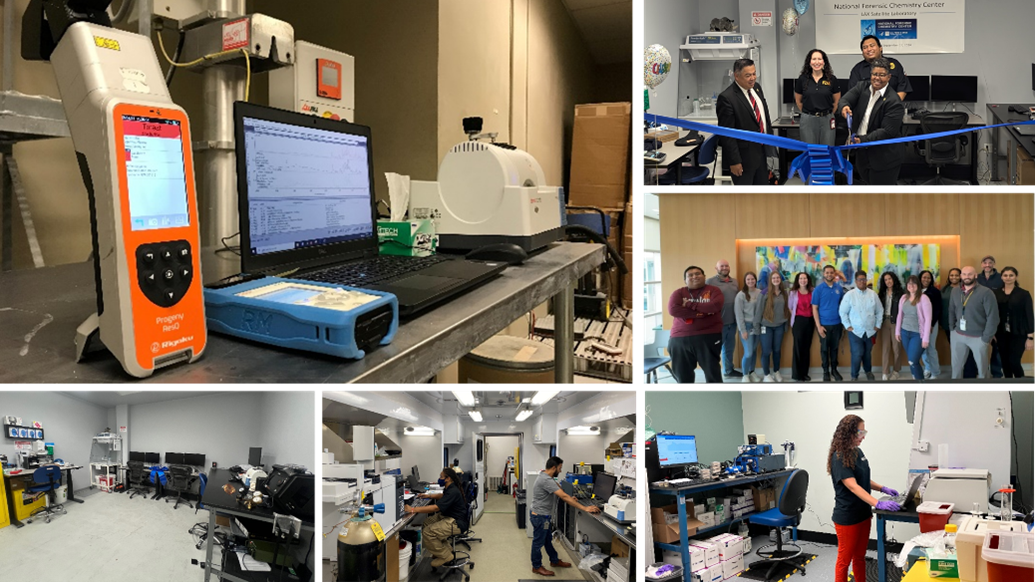FDA Satellite Laboratories
In October 2018, Congress passed the SUPPORT Act (Substance Use-Disorder Prevention that Promotes Opioid Recovery and Treatment [SUPPORT] for Patients and Communities), giving the U.S. Food and Drug Administration new authorities to intercept illegal drugs through international mail. This included funds for space and equipment as well as additional Agency scientists and investigators in the International Mail Facilities (IMFs). It also opened the way for scientists at the FDA’s National Forensic Chemistry Center (NFCC) in Cincinnati to develop an innovative approach to bring drug detection to the points of entry.
In collaboration with the U.S. Customs and Border Protection (CBP) and in support of a Memorandum of Understanding signed by both organizations’ commissioners, the FDA’s Medical Products and Specialty Laboratory Operations scientists conducted a pilot project at the Chicago IMF satellite laboratory. Completed in 2020, the Agency is now working to expand this effort, with satellite laboratories at IMFs in Miami (opened August 2023), New York/JFK (opened August 2024), Los Angeles/LAX (opened September 2024), and Honolulu (opening FY2025). A screening laboratory with HCFAC support also opened in Guam in July 2023.
Since the inception of the program in June 2021, the satellite laboratories screened over 2,200 products that were associated with over one million finished dosage forms at IMF facilities. Analyses of these samples helped prevent over 790,000 dangerous finished dosage forms from reaching the American supply chain. More than 492,000 of those products were refused entry and over 289,000 were destroyed using FDA’s administrative destruction authority. In fiscal year 2024 alone, the laboratory analysis of 1,042 samples resulted in the refusal of approximately 75,300 products and destruction of over 123,800 finished dosage forms. The Satellite Laboratory Branch has identified 433 unique active pharmaceutical ingredients (APIs) and related substances.
Scientists at the FDA’s National Forensic Chemistry Center are also involved in the INTREPID project which is a collaborative research project with CBP and the U.S. Drug Enforcement Administration (DEA). Analysts at FDA are in the process of analyzing 75 fentanyl and 2 xylazine samples with the goal to link these drug compounds to a common source. In July 2024, a Memorandum of Understanding was signed to allow the distribution of information between the three agencies to further the progression of the project.

